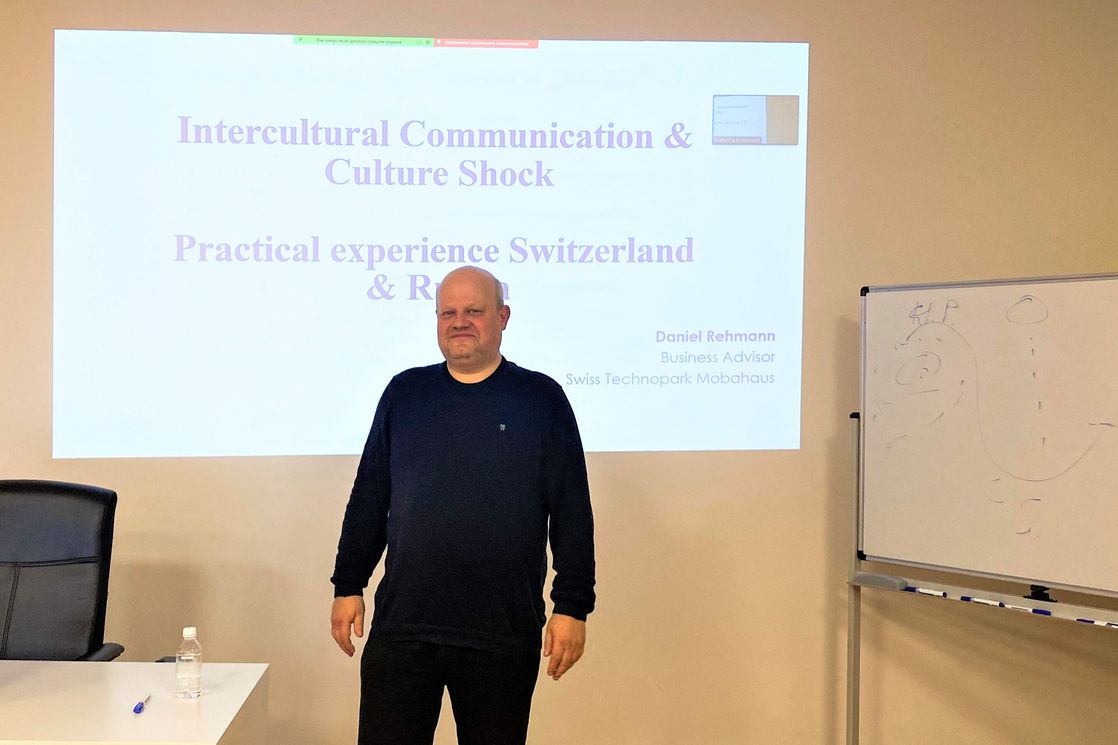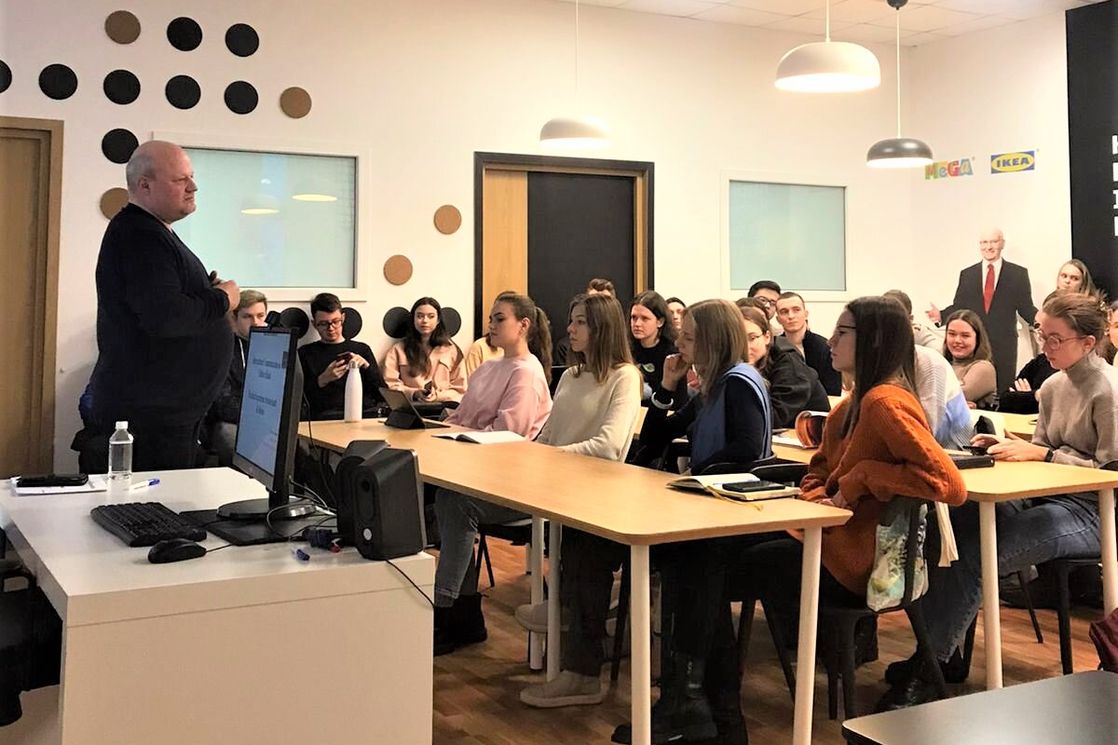HSE Nizhny Novgorod Hosts Public Lecture: 'Intercultural Communications: How to Avoid Culture Shock?'
On November 23, students of HSE University-Nizhny Novgorod discussed the role of cultural identity in business and personal growth. Christian Callegaro, Senior Lecturer of the Department of General and Strategic Management at the HSE Faculty of Management in Nizhny Novgorod, and Daniel Rehmann, business consultant at the Swiss technopark Mobahaus in St Petersburg, were the speakers at the meeting.

Many accept that we live in a globalised world where barriers to communication have practically ceased to exist and that today, a knowledge of English is enough to establish contact with someone from another continent. But is that really so?
According to the pragmatic approach to language, the meaning of a message is determined not only by the meaning of a set of words and their order in the utterance, but also by the context in which this utterance is voiced. Cultural identity is one of the components in this context. Therefore, for mutual understanding, people need knowledge of the cultural characteristics of their interlocutors. But what happens if we expand the context of communication in foreign language to the size of a country? How can a representative of Italian culture communicate, work, and live in Russia, for example?
One of the speakers, HSE University-Nizhny Novgorod lecturer Christian Callegaro, spoke about the conclusions he has come to thanks to his rich experience of intercultural communication and life in Russia. He defines culture shock as a psychological state in which a person feels lost. This state arises when leaving one’s comfort zone. In the case of cross-cultural communications, this comfort zone is the native cultural context of the speaker. According to the Oberg model (1960), the process of adaptation to a state of culture shock can be divided into three phases:
- Honeymoon: a time when all the cultural realities surrounding a person seem extraordinary and attractive.
- Adjustment: a process during which rejection occurs due to inconvenient and unusual circumstances.
- Mastery: a phase marked by satisfaction with one's position in a new society, when one has a positive attitude and is included in a new culture.
According to the speaker, culture shock is a natural reaction that does not need to be fought—it is worth living through. Christian Callegaro advises treating such an experience as a means of self development. 'Without this, you will not grow,' he explains. The experience of intercultural communication can give students great advantages in their future career. Valuable adaptation skills and the ability to read cultural code will help to build effective communication both professionally and personally.

Together with business consultant Daniel Rehmann, the students analysed the business case of the Swiss technopark Mobahaus in St Petersburg. Using his example, they found out how cultural differences manifest themselves in the work of Swiss and Russian people and by which models different cultures can be classified.
According to the iceberg model, most meanings are conveyed by the nonverbal component of a message. This contains about 80% of the information understood by the recipient. Like the base of the iceberg, the meanings contained in nonverbal signs are invisible to someone from another cultural background, and therefore can cause misunderstanding.

According to Daniel Rehmann, key cultural concepts are the basis for intercultural differences. In his research, he determined how the working processes of native speakers from Russian and Swiss cultures differ and what reasons lie behind these differences. According to the business consultant, working communication in Russian-speaking society is influenced by such factors as centralisation, collectivism, rigid hierarchy and caution against novelty. The Swiss paradigm is characterised by decentralisation, little power distance, priority of working relations over personal ones, individualism, liberalism. Professional communicators should be able to apply language correctly so as to overcome the communication barriers caused by differences in their approaches to work. It is knowledge in the field of intercultural communication that will help them.
The speaker himself highlights the following ways to overcome cultural shock:
1. Learn a foreign language
2. Get to know speakers from another culture
3. Study the history, geography and national cuisine of the country whose culture you encounter
4. Do sports
5. Join local business communities
Thus, intercultural communication skills are necessary in business as one of the areas where communication practice is applied. These skills contribute not only to personal and professional growth, but also ensure success in working with foreign colleagues.

